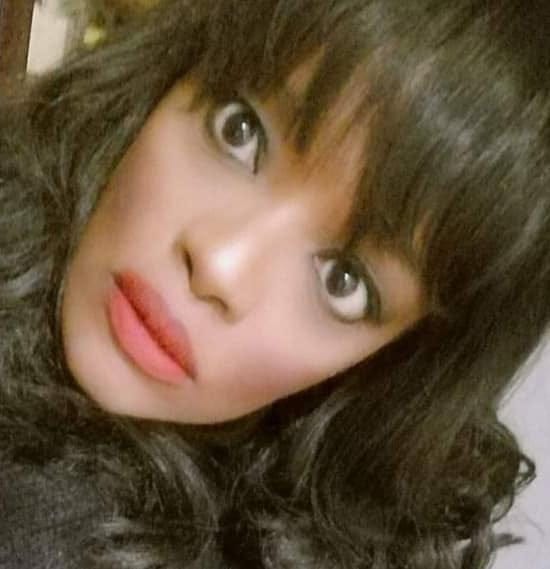Kuli Roberts: The Divided Soul in the Bitches Brew
Dark complexioned as she was, she was fearless. She bristled with black pride and self-love. She was ready and willing to confront the white media monopoly, writes Sandile Memela
SOUTH AFRICA: Early in her career, Kuli Roberts was fired from her job at Pace magazine because she refused to be a white management lackey.
She had been brought into the notorious Pace magazine because of her highly impressive UCT qualifications and potential to be a superb journalist. She was an English and History major.
But to retain her position to rise to be the first female editor of the apartheid rag, they wanted to use her to get rid of 'troublesome' blacks who were painted as deadwood among the staff.
She refused to be a patriarchal capitalist tool. Thus, she was removed and thrown out of the posh job. They thought they killed her opportunity to make history but did not know she was a seed.
This was 2003. And she was 30 years old.
The winds of change were blowing through the country. Or so we thought with a Thabo Mbeki talking down Pan-Africanism.
Worse, there was much-vaunted talk about transformation, including in the media. It was a pipe dream.
She was one of the fewest black media personalities who were not willing to ride on black people's backs to become a prominent personality. Some had to fight to kill to rise to a delusional god-like editorship position.
Who can blame them? The prerequisite to glorious success in South Africa is that you must be a sellout. It is a free country where black lives are cheap.
Something about her defiance stirred the soul. She had chutzpah.
Dark complexioned as she was, she was fearless. She bristled with black pride and self-love. She was ready and willing to confront the white media monopoly.
Above all, she was brazen. Perhaps recklessly fearless. This was soon in the bush telegraph.
Suddenly, she captured headline news for her stance. Thus she became a controversial name on people's lips in media circles.
Who was that IT girl?
At the time, many black journalists were fast-tracked to senior positions they neither deserved nor qualified for to create a misleading face of transformation.
Many fell for the trick. They were desperate for recognition and fame. But not Kuli!
She told me her father was a Dr. Mboya at the department of mathematics at UCT. And her sister was a rising TV star, Hlubi Mboya. No doubt, she had the right family credentials.
What intrigued many was that she was divorced from a white man, a Mr. Roberts, and had left him with her two children.
She was a young, vivacious, madly attractive, and fast-talking Xhosa woman who was not afraid to go where angels feared to tread. This was her characteristic brazenness.
When you met her in person, she radiated electrical power that could light up a room. Yet, she had these big eyes that reflected her soft and delicate soul. When you looked at her, she was fragile, delicately so.
She was difficult to ignore.
When a colleague and late Sunday World publisher, Bongani Keswa saw her and heard her baritone and infectious laughter, he could not save himself. He was smitten and she was soon employed.
Her magic was irresistible. He took her to nightspots in the Soweto township like 2 Feet's in volatile Diepkloof, late at night.
And people fell in love with her infectious personality and provocative self-expression. She exuded sexual energy.
Thus she got to taste the spirit of Soweto and found herself straddling townships and suburbs.
The maverick image clung to Kuli. To her, it seemed the personal was the political and the political was personal. Her boldness bordered on audacious Black Consciousness fired from the hip.
There were whispers in some circles that she was recovering from deep emotional woundedness. She was a divorcee.
Detractors felt her provocative and controversial column, Bitches Brew, was a projection of personal issues. It was punctuated by brutal openness and honesty.
Above all, she was true to herself.
The no-holds-barred column was not for the faint-hearted. It ripped the spirit of romance out of the heart and threw the idea of monogamy or marriage out of the window.
She was a different kind of female African professional, especially in the media space. There are many women who, unconsciously, looked at the world from her reckless feminism.
Previously, she was a beauty editor at Drum magazine. She had been at Fair Lady before.
She dressed well, was as pretty attractive as a model, and enjoyed socializing and making men feel desired.
Worse, she was glamorous, articulate, and black beauty in her own right. On some days she walked into the office on a late morning, only to disappear soon after lunch to attend a glitzy function.
And, of course, through Bitches Brew she enjoyed an unusual status of a one-woman army who was not shy to condemn marriage, assault the egos of possessive men and urged women to express a desire to liberate themselves from their clutches.
Ironically, she was not your anti-men gender activist. But the imagined image of being a shit-stirrer could not possibly have been further from the truth. She had no clear political agenda.
Yet Kuli, knowingly and willingly, put herself headfirst into the cauldron of a new politics of sexual revolution at a time when women were encouraged to cling to marriage, nucleus family, and monogamy.
She shook the foundations of conventional family life where women were compelled to conform. The number of free, independent, and financially secure women was growing.
Her writing style was cynical and critical in how it portrayed the spiritual emptiness of successful people that over-relied on material accumulation to measure happiness or achievement.
She had bulldozed her way into the selected collective team that wrote Shwashwi, a widely read gossip feature.
It was here that the strain of a struggle to make sense of the contradiction and paradox of the black middle class and entertainment celebrities reared its head.
In its way, it was a satirical column that took the mickey out of the much-vaunted black celebrity culture.
By climbing the ladder to throw herself into the heart of a hedonistic society, Kuli invited her colleagues, fans, and readers to confront the absurdity of living in a material worshipping society.
Underneath this veneer, Kuli – as a prominent woman professional - grappled with a sense of belonging in the euphoria of the freedom and gender equity of post-apartheid society.
Now, she had to make sense of the ‘double consciousness’ of some who straddled the worlds of both the privileged and historically disadvantaged.
The closer she came to black super achievers and celebrities in an unjust and unequal society, the more she was haunted by this contradiction.
She was a regular VIP patron of the far into the night drinking sessions which, in essence, were an SOS cry of wounded people. She inhaled a lot of weed smoke in these places.
She was against black super achievers and celebrities that did not plough back.
Above all, she was opposed to supremacist racism, patriarchy, capitalism, and the anti-black sentiments that pervade this country.
She was a fresh and insightful female African voice that sensed the trauma and pain of the majority.
And as a journalist, she expressed her solidarity in a way that perhaps turned her into a strange fruit in the tree of post-apartheid freedom.
May her soul find peace.





